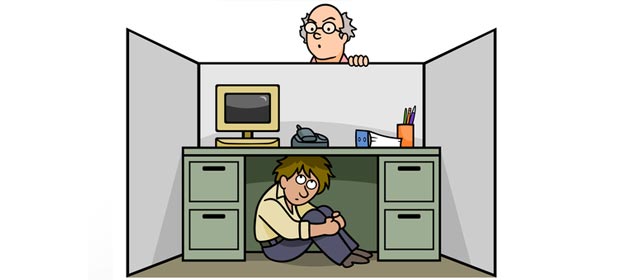Are those ‘1,500 spare administrative staff,’ referred to by Minister Howlin holed away in nooks and crannies, continuing to scratch out an existence below the health mainstream, alongside oblivious colleagues mystified by the missing chocolate biscuits in the staff kitchen, asks Laurence Nightingale.
It’s September and all over the country, bleary-eyed rascals are hauling themselves out of their pit to make that slow, meandering trudge back to reality; their heavy tread contrasting with the light-footed skip that has characterised Ireland’s HB-sponsored summer. Shirts have been crisply ironed. There are new pencils. The petulance and name calling has begun in earnest as have the schoolyard squabbles. Yes it can only mean one thing – the Dail is back this month.

With tans fading, flip-flops worn away and sporting an over-indulged physique straight off ‘Embarrassing Bodies,’ our politicians must fight their way through the unwashed slew of protestors on Kildare Street and once again take their seats in the hallowed halls of power.
After months luxuriating in the languid surroundings of their holiday homes in the Loire Valley and other destinations, our political masters have returned to Ireland’s fair shores reinvigorated and imbued with a renewed sense of purpose. Drinking wine and complaining about ‘the tourists’ in a loud booming voice has put them in fine fettle for the battles that lie ahead. No doubt there will be fresh debate, new policy positions put forward and a renewed optimism about the nation’s prospects as the tentative signs of growth in the economy appear.
So it was disappointing, but not unsurprising, to hear the Minister for Public Expenditure and Reform back on message earlier this month decrying the HSE and its bloated administration. The summer recess had done little to generate original thought on the challenges facing the health system. At this stage according to Howlin, there are only ‘1,500 spare administrative staff’ in the public health system for which the ‘HSE has no need of.’
The question of course is – where are these staff? And do they exist? With Bin-Laden like stealth, have they managed to live under the radar despite the hawkish pursuit of management consultants, ideologues and jaded hacks? Are they holed away in nooks and crannies, continuing to scratch out an existence below the health mainstream, alongside oblivious colleagues mystified by the missing chocolate biscuits in the staff kitchen?
Having failed to be lured out of hiding by early retirement, voluntary redundancy and incentivised career break schemes and, having avoided being smoked out by deteriorating terms and conditions, lack of development opportunities and general demonization, are we to believe that these employees – under-led, under-managed and undercover – continue to live amongst us engaged in some form of Maoist ‘Make Work’ programme?
Starving the health delivery system of the power to source essential management skills whilst simultaneously strengthening the capacity of its paymasters to criticise that same deficit must surely be counter-intuitive.
Yes not since the disappearance of Shergar has the whereabouts of glorified donkeys proved so elusive. Perhaps, reminiscent of James Cameron’s Titanic, the bowels of hospitals and health offices everywhere have crowds of pointless administrators drinking, dancing and laughing their days away whilst above stairs; their baffled masters despondently stroke their beards…… Well so they would have you believe.
Government departments like to get out in front of the message; very often leaking stories and generating ‘non-attributed’ speculation on aspects of public policy. Increasingly this is used in anticipation of the public disclosure of their own mistakes, forecasting deficiencies or general lack of insight to the systemic problems which beset public administration in many jurisdictions. A few well-timed digs at a much maligned target help focus the heat away from central government. With a media that is relatively hostile towards health managers and a public conditioned by this Government and its apparatchiks to view most state employees as lazy, over-paid and incompetent, it is not surprising that all blame can be deposited at the door of the HSE and its management. The Department of Pogroms Enlightenment and Reductionism (DPER) has been the leading proponent of this.
Step into any state-run hospital or health care facility in the country and you will find skills shortages across key staffing categories; the absence of on-site functional support in areas such as Human Resources, Finance, ICT and skills deficits in business planning, analysis and performance management are concerns common to most sites. Step into DPER and you won’t find anybody that has worked in the health service.
Time was that a bad Leaving Cert and a worse suit got you a job in the civil service. Increasingly the State’s two Finance Departments, largely immune from the moratorium, have recruited from the private sector. As DPER continue to stuff their ranks with even more specialists and technocrats, the irony of continued recruitment at senior and middle management in the civil and public service seems to be lost in public debate. Only this week came news that the much vaunted open competition for Principal Officers in the civil service looks like it will soon to see the light of day. And whilst ‘new blood’ is essential for organisations, ‘bad blood’ reduces motivation and engagement.
Starving the health delivery system of the power to source essential management skills whilst simultaneously strengthening the capacity of its paymasters to criticise that same deficit must surely be counter-intuitive. Like the GPs who saw all those dead people with medical cards, at a certain point the state will have to face up to the hallucinogenic aspects of their headcount policy in health. Maybe too much time has been spent enjoying café life around Amsterdam ‘researching’ the Dutch healthcare system.

